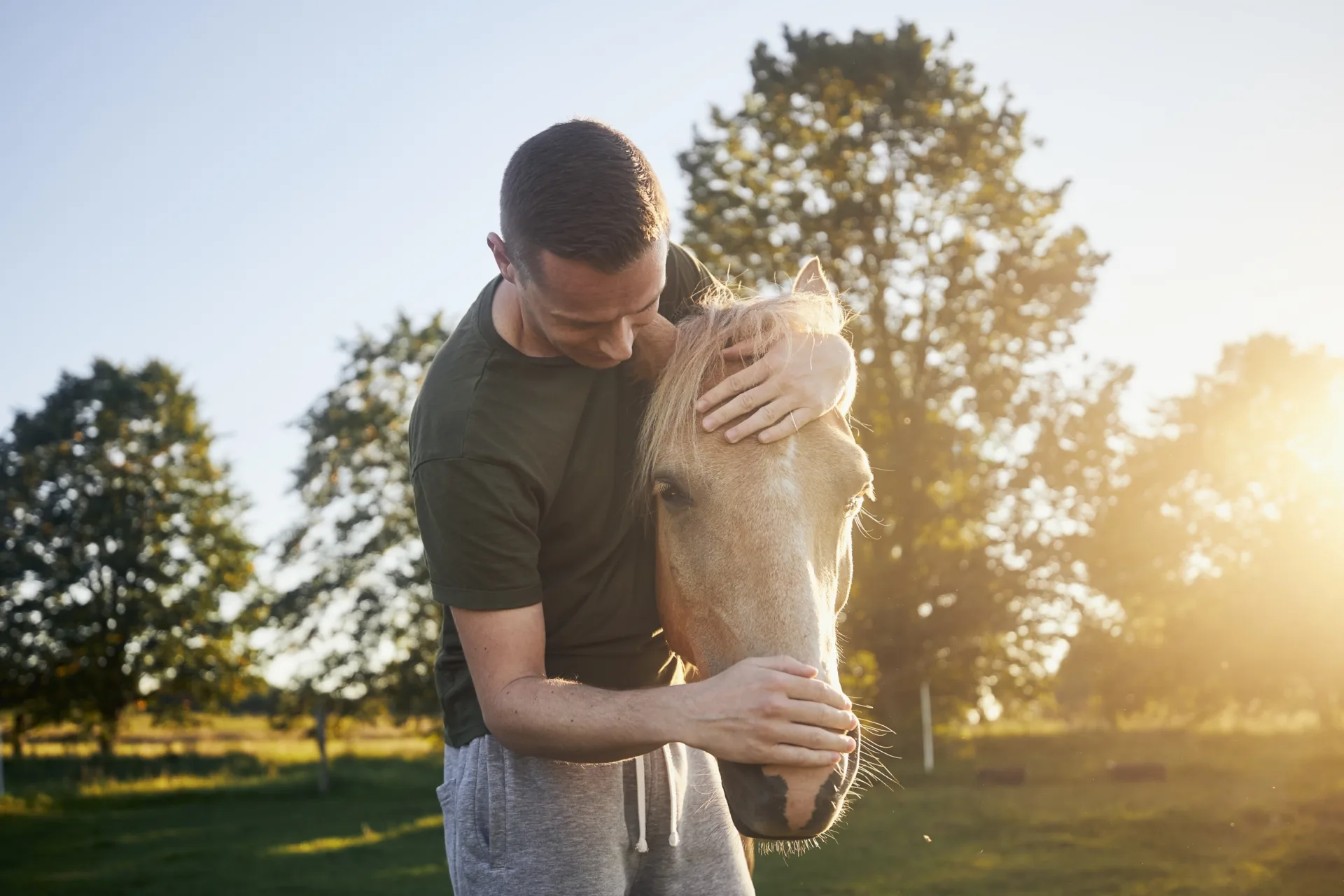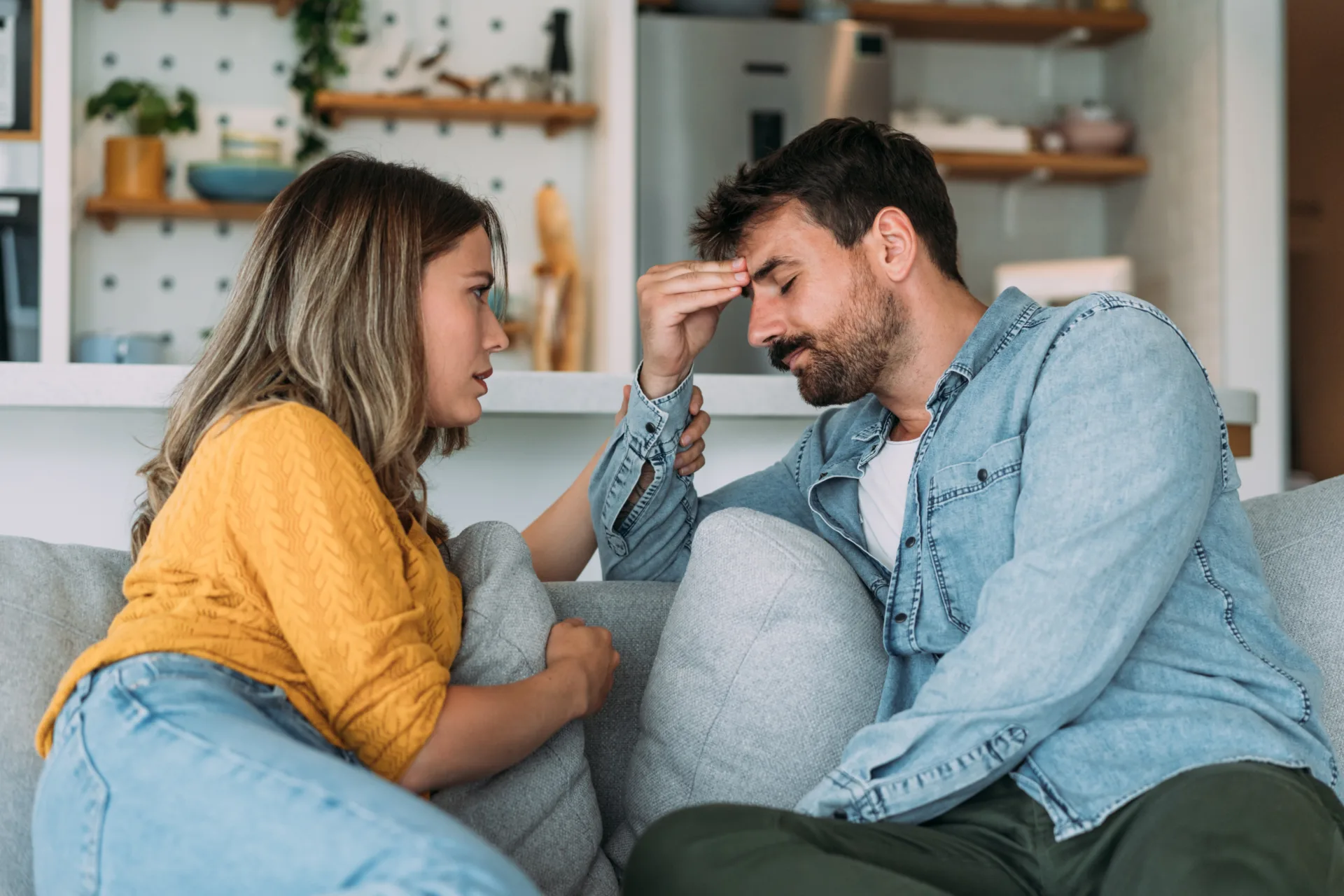
The Research Behind Equine-Assisted Therapy: Healing for Diverse Populations
Equine-assisted therapy (EAT) has gained increasing recognition as a powerful therapeutic tool, offering emotional and psychological healing for various populations. This form of treatment leverages the unique relationship between humans and horses to address deep-seated issues, including trauma, mental health challenges and addiction. The benefits of equine-assisted therapy are especially notable for individuals dealing with conditions like substance use disorders, PTSD, sexual abuse trauma, depression and anxiety. Recent research continues to affirm the efficacy of this therapy, shedding light on its transformative effects for diverse population groups.
Equine-Assisted Therapy for Substance Abuse
One of the most profound applications of equine-assisted therapy has been in the treatment of substance use disorders. Individuals struggling with addiction often experience difficulty managing emotions, building trust and maintaining healthy relationships—challenges that can be addressed effectively through equine-assisted therapy.
Horses are highly intuitive animals and respond to the emotional states of the people around them. In therapy sessions, this responsiveness allows individuals to see the impact of their behaviors and emotional states in real-time. For someone with a substance use disorder, this can be a revelation. Horses provide immediate feedback, enabling individuals to explore emotional regulation, communication, and trust-building in a safe, nonjudgmental space.
Research on equine-assisted therapy for substance abuse has shown promising results. A study published in the Journal of Creativity in Mental Health found that participants in equine-assisted therapy for substance use disorders experienced significant reductions in anxiety, depression and feelings of hopelessness. These findings support the idea that working with horses can help individuals struggling with addiction build self-awareness and emotional resilience, both critical factors in long-term recovery.
Equine-Assisted Therapy for PTSD
For individuals living with PTSD, particularly veterans and survivors of trauma, equine-assisted therapy offers unique and powerful benefits. The condition is often characterized by hyperarousal, flashbacks and emotional numbing, which can make traditional forms of treatment challenging. Horses, with their sensitive nature, provide immediate feedback to emotional and psychological states, making them ideal partners for those coping with trauma.
Studies have demonstrated that equine-assisted therapy for PTSD can lead to significant reductions in PTSD symptoms. A 2018 study published in Military Medicine examined the effects of equine-assisted therapy on veterans with PTSD. The results indicated that participants improved emotional regulation, decreased hypervigilance and increased trust throughout their treatment. These improvements were sustained even after the therapy concluded, demonstrating equine-assisted interventions’ long-term impact.
Horses’ ability to mirror the emotions of individuals with PTSD can help them become more aware of their internal states, offering a unique pathway to healing that is often not available in traditional talk therapy. Working with horses can also help individuals relearn how to form connections with others, a critical aspect of recovering from trauma.
Equine-Assisted Therapy for Sexual Abuse Survivors
For survivors of sexual abuse, equine-assisted therapy can be a powerful tool in the healing process. Sexual abuse often leaves lasting scars, including shame, distrust and emotional numbness. Survivors may struggle to reconnect with their bodies and emotions after experiencing such a profound violation. Horses, with their non-judgmental presence and sensitivity, offer a safe space for survivors to begin the process of emotional reconnection.
Multiple studies have supported the benefits of equine-assisted therapy for sexual abuse survivors. One study in The Journal of Child Sexual Abuse found that equine-assisted therapy helped participants rebuild trust, improve self-esteem and decrease feelings of isolation. The horses’ ability to mirror survivors’ emotions allows them to explore their feelings without fear of judgment, creating a sense of safety and empowerment in the therapeutic process.
Through working with horses, survivors of sexual abuse can regain a sense of control over their bodies and emotions, fostering a path toward long-term healing.
Equine-Assisted Therapy for Depression and Anxiety
Depression and anxiety are among the most common mental health disorders worldwide, affecting millions of people each year. While traditional therapy approaches such as cognitive-behavioral therapy (CBT) and medication have proven effective, alternative methods like equine-assisted therapy for mental health offer a unique and complementary approach.
Research suggests that interacting with horses in a therapeutic setting can help reduce symptoms of both depression and anxiety. A study published in the Journal of Integrative Veterinary Therapies found that individuals with depression and anxiety experienced improved mood, reduced anxiety levels and increased feelings of calm after participating in equine-assisted therapy sessions.
The non-verbal nature of equine-assisted therapy can be particularly beneficial for individuals who struggle to articulate their emotions in traditional therapy settings. The calming presence of horses and the physical activity involved in caring for and interacting with them helps regulate emotional states. This makes equine-assisted therapy a valuable intervention for those seeking a holistic approach to managing anxiety and depression.
Why Equine-Assisted Therapy Works: The Power of Connection
One of the critical reasons why equine-assisted therapy is so effective across various population groups is the profound connection that develops between the individual and the horse. Horses are social animals highly attuned to the emotions of those around them. They offer a non-judgmental presence and provide immediate feedback to emotional and psychological states. This feedback encourages individuals to become more aware of their emotions, develop emotional regulation skills and practice healthy communication.
Horses also require individuals to be present at the moment. In a world where many people struggle with anxiety, stress or trauma, learning to focus on the present can be a powerful therapeutic tool. Caring for and interacting with horses encourages mindfulness, emotional regulation and self-reflection—all critical components in healing from mental health challenges and trauma.
The Broader Benefits of Equine-Assisted Therapy
While equine-assisted therapy is particularly beneficial for individuals with substance use disorders, PTSD, sexual abuse trauma, depression and anxiety, its benefits extend far beyond these populations. This form of therapy fosters a sense of connection, builds emotional resilience and promotes greater self-awareness in participants of all backgrounds. By engaging in a therapeutic relationship with a horse, individuals can experience deep emotional healing, develop healthier ways of coping and improve their overall well-being.
Equine-Assisted Therapy: Proven for A Range of Conditions
The benefits of equine-assisted therapy are increasingly supported by a growing body of research, particularly for those dealing with substance use disorders, PTSD, sexual abuse, depression and anxiety. This unique therapeutic approach offers a safe, non-judgmental space for emotional exploration and healing. As more studies confirm its effectiveness, equine-assisted therapy continues to gain recognition as a valuable intervention for diverse populations, providing a path to deeper emotional awareness, connection and recovery.








